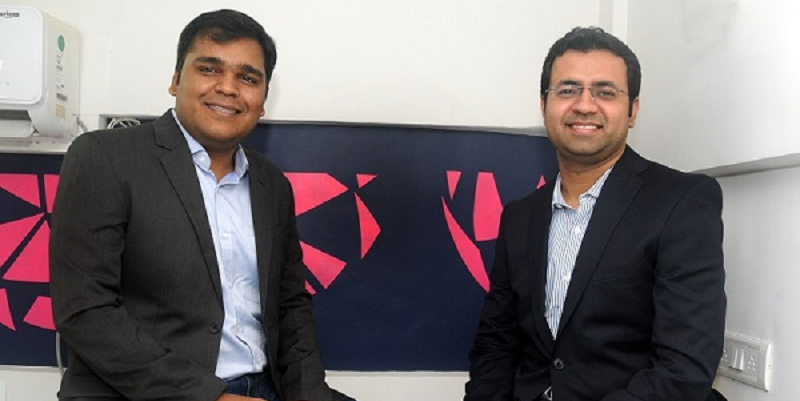“In India smaller advertising agencies are gaining increased acceptance in the market,” Ravikant Banka, CMD, Eggfirst
Ravikant Banka setup Eggfirst, an ad agency based in Mumbai in 2004. His journey over the years is nothing short of a good rollercoaster ride -- while the initial days were filled with heady excitement the responsibility of taking the firm to the next level was a new one for Ravikant. Today, Eggfirst has worked with some of the largest consumer product organizations and brands like Unilever, Park Avenue, and Blaupunkt. Here, he speaks about how the advertising sector has changed over time, and what care should people starting up take.

RB: The advertising industry is a very dynamic industry. In the least, it has to keep pace with the changing markets and consumers. In the western markets, the industry is quite ahead where there is more experimentation in new media, newer shopping formats, new consumer interfaces and all of this is well integrated with the help of technology. While, even the Indian advertising industry is very actively integrating with these newer world realities, it is still playing a catch-up game.
On the other hand, today in India even smaller advertising agencies have gained acceptance in the market. Larger brands are trusting smaller agencies for not only their below-the-line work but also their mainstream campaigns. On the other hand, smaller agencies have repurposed themselves to think big and deliver on the platform that larger brands require.
YS: What should entrepreneurs who are starting up do to gain maximum visibility and trust for the brand?
RB: For maximum trust, there is no other way than to simply do things that are trustworthy. One of the most important things I have learnt is that keep your client’s interest ahead of yours. However, strange it may sound, your client’s success should be most important objective of your organization and that will automatically result in your organization’s growth.
For maximum visibility one has to do a mix of various things: depending on the industry one belongs to, various different mechanisms and levels of visibility generation need to be pursued. Participate in industry gatherings, do a blog, be a thought leader, create definitive web presence and be seen. While nothing substitutes good quality deliverables for your clients, creating visibility is the immediate next important aspect to be pursued actively. To be seen and spoken about (in the right context) is very important. If budgets are a constraint, do limited marketing efforts but whatever is undertaken should have a class of itself. It is better to not undertake any marketing activity or restrict yourself to doing few activities compared to doing many things of poor quality. A very small example: do not ever do substandard business cards, letter heads, corporate brochure and website. These are the basics which create the first impression for the organization/ brand. We at Eggfirst, spend seven times the cost of a regular business card for a special visiting card we have created. And I am sure it has given us a few hundred times the value since our business cards are such that rarely anybody forgets them.
YS: How should entrepreneurs work around building a brand for their product/service?
RB: It may sound uncommon coming from an advertising professional, but the first thing to manage is the quality of your product or service being delivered. Advertising or branding does not substitute good quality deliverables. Having taken care of that, then marketing comes into play. And seriously so. It is of paramount importance that marketing creates the awareness and propensity to purchase. On B2B brands, the demands of this principle is different than on B2C brands. In the former, branding is centered around and focused significantly on measurable tangible parameters. On the other hand, for B2C products, the branding could be focused on purely intangible parameters say, like the ‘Mint with the hole ‘(Polo). Or say, Kurkure (Tedha hai par mera hai).
Free or low cost media elements such as LinkedIn, blogs, websites, etc. should surely be pursued actively.
YS: What are the 3 most important lessons you would like to share with inexperienced entrepreneurs?
RB: 1. Before taking the plunge, do the planning: which industry, what product/ service offering, market conditions, competitors, future, funds flow, etc. Don’t necessarily go with established market views, take your own calls but do your planning in detail. Have some funds stashed away for the rainy day. Surely have a backup plan.
2. Failing in an entrepreneurial endeavor is still a success since the learnings it will leave you with, will be of immeasurable value. So, if the broad plan is good, go with your gut and execute with precision and passion. Often a lot of plans fail because of poor execution.
3. Hire people better than you yourself. Especially espouse people who have the guts to disagree with you and say it to you on your face. In today’s times people who have a mind of their own is a rare thing to come across. If you come across one such, pull him in. It is the team which makes an organization and takes it to another level. Trust in the team. Especially give extra room to juniors who have potential. This has been one of the most important HR aspect which has helped Eggfirst build.











![[Startup Bharat] Y Combinator-backed BeWell Digital is enabling the digital transformation of radiologists](https://images.yourstory.com/cs/2/40d66ae0f37111eb854989d40ab39087/ImagesFrames31-1648033042143.png)